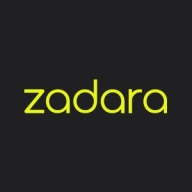


Red Hat Ceph Storage and Zadara are competing products within the cloud storage ecosystem. Zadara seems to have the upper hand due to its comprehensive enterprise features and simpler deployment process, making it attractive for enterprises seeking advanced solutions and excellent customer support.
Features: Red Hat Ceph Storage provides scalable, software-defined storage with strong integration capabilities, delivering flexibility and adaptability. Zadara offers advanced cloud storage features, including comprehensive management tools, robust security options, and the ability to integrate with major cloud vendors, ensuring a complete enterprise solution.
Room for Improvement: Red Hat Ceph Storage's complex deployment model and cost management pose challenges in achieving expected ROI. Zadara could improve by diversifying its pricing model to be more accessible to smaller companies, enhancing cache logic to benefit more unique workloads, and increasing feature accessibility for varying levels of customer expertise.
Ease of Deployment and Customer Service: Red Hat Ceph Storage requires expertise due to its complex deployment, though it offers flexibility across various environments. Zadara, on the other hand, provides an easier deployment process and excellent customer support, making it more accessible for organizations prioritizing seamless service.
Pricing and ROI: Red Hat Ceph Storage is cost-effective owing to its open-source nature but may incur additional deployment and management costs. Zadara's pricing model, while higher, reflects its enterprise features and offers strong ROI when its advanced features are leveraged fully, making it appealing for enterprises that need high-end functionalities.



FlashBlade is the industry’s most advanced scale-out storage for unstructured data, powered by a modern, massively parallel architecture to consolidate complex data silos (like backup appliances and data lakes) and accelerate tomorrow’s discoveries and insights.
Zadara is a powerful enterprise-level storage solution whose design enables it to handle every aspect of a user’s data storage needs. It can be deployed in any location, using any protocol, and storing any data type that an organization requires. With Zadara, organizations can do everything that they were able to do with more traditional systems in a cheaper and more efficient way.
Zadara Benefits
Some of the ways that organizations can benefit by choosing to deploy Zadara include:
Zadara Features
File analytics. Organizations can leverage a powerful analytics package that can provide them with critical insights. These tools can help users sort through their data and make more informed data management decisions.
Reviews from Real Users
Zadara is a highly effective solution that stands out when compared to many of its competitors. Two major advantages it offers are its extensive suite of cloud solution integrations and its object storage capability.
Steve H., the chief technology officer at Pratum, writes, “One of the most valuable features is its integration with other cloud solutions. We have a presence within Amazon EC2 and we leverage computer instances there. Being able to integrate with computing, both locally within Zadara, as well as with other cloud vendors such as Amazon, is very helpful, while also being able to maintain extremely low latency between those connections.”
Mauro R., the CEO of Momit SRL, says, “The object storage feature is wonderful. With traditional storage, you have a cost per gigabyte that is extremely high or related to the number of disks. With Zadara Storage Cloud, you have a cost per gigabyte that you can cut and tailor to your needs independent of the number or size of the disks.”
We monitor all Software Defined Storage (SDS) reviews to prevent fraudulent reviews and keep review quality high. We do not post reviews by company employees or direct competitors. We validate each review for authenticity via cross-reference with LinkedIn, and personal follow-up with the reviewer when necessary.